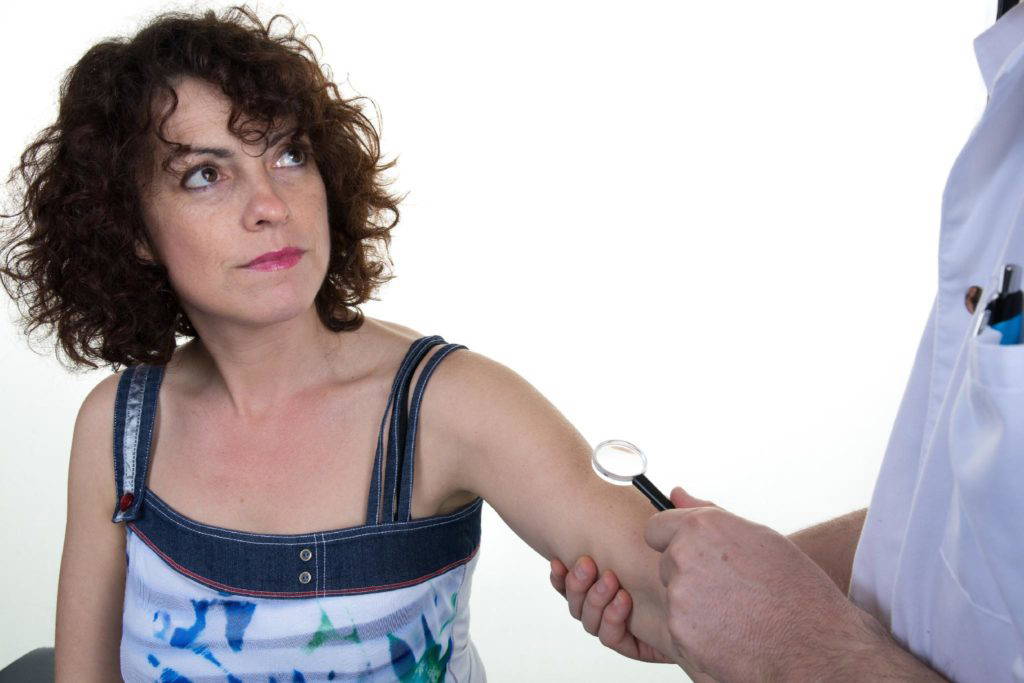
For patients, being told that they may or do have a skin cancer such as melanoma, basal cell carcinoma or squamous cell carcinoma is obviously a stressful and worrying time. Many questions begin to move around in their heads, and those close to the patient will undoubtedly also be very concerned. However, every patient is different and it is important to remember that there are many forms and stages of skin cancer, so it is important that you try not to worry too much.
The fear of the unknown is hard to deal with so the best thing to do is to find out as much information as you can. This is where an experienced doctor, with an approachable manner, is invaluable.
A good patient/doctor relationship is, for me, one of the most important things in healthcare, and it is important for me to emphasise that I care about my patients and want them to trust me and feel entirely comfortable with me.
At every stage of the diagnosis, treatment and aftercare, your doctor should keep you informed of what is going on and what will be happening. It’s also very important that they explain everything to you; translating the sometimes confusing medical jargon and making sure you understand each aspect of your care.
A trained practitioner should offer all the information you need to know. However, it is always good to be armed with some questions you can ask. In simple terms, being able to think constructively about what you need to know and do can help you get to grips with what you’re experiencing. There may also be things you haven’t considered or have overlooked. The below list of questions may also prove helpful to a patient’s family, as the patient themselves might be somewhat overwhelmed.
While the thought of skin cancer can cause concern, it is important to remember that early diagnosis and treatment can lead to a much better prognosis for the patient, and the advancements in the management of skin cancer have led to significant improvements in the potential outcome for those affected.
If you are concerned about your skin or that of a loved one, arrange a consultation with me at my clinic, and, because being sun smart is important in reducing the risk of skin damage from UV rays, download our free guide to sun protection:
Download Mr Chan's Guide to Proper Sunscreen Use

For patients, being told that they may or do have a skin cancer such as melanoma, basal cell carcinoma or squamous cell carcinoma is obviously a stressful and worrying time. Many questions begin to move around in their heads, and those close to the patient will undoubtedly also be very concerned. However, every patient is different and it is important to remember that there are many forms and stages of skin cancer, so it is important that you try not to worry too much.
The fear of the unknown is hard to deal with so the best thing to do is to find out as much information as you can. This is where an experienced doctor, with an approachable manner, is invaluable.
A good patient/doctor relationship is, for me, one of the most important things in healthcare, and it is important for me to emphasise that I care about my patients and want them to trust me and feel entirely comfortable with me.
At every stage of the diagnosis, treatment and aftercare, your doctor should keep you informed of what is going on and what will be happening. It’s also very important that they explain everything to you; translating the sometimes confusing medical jargon and making sure you understand each aspect of your care.
A trained practitioner should offer all the information you need to know. However, it is always good to be armed with some questions you can ask. In simple terms, being able to think constructively about what you need to know and do can help you get to grips with what you’re experiencing. There may also be things you haven’t considered or have overlooked. The below list of questions may also prove helpful to a patient’s family, as the patient themselves might be somewhat overwhelmed.
While the thought of skin cancer can cause concern, it is important to remember that early diagnosis and treatment can lead to a much better prognosis for the patient, and the advancements in the management of skin cancer have led to significant improvements in the potential outcome for those affected.
If you are concerned about your skin or that of a loved one, arrange a consultation with me at my clinic, and, because being sun smart is important in reducing the risk of skin damage from UV rays, download our free guide to sun protection:
Download Mr Chan's Guide to Proper Sunscreen Use